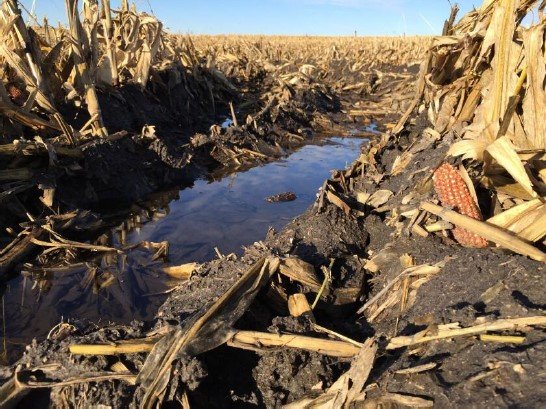Emenda® helps dairy cattle manage the negative effects of feed and forage quality challenges including exposure to mycotoxins.
Helps support gut health, and provides mycotoxin control at low to moderate levels

EMENDA® is an immune and digestive support blend that takes yeast extract a step further in protecting livestock health and improving production. While enhancing immunity and health, the addition of bentonite and Bacillus subtillis work to help flush toxic substances and improve digestion of feed. All this adds up to improved gut health and energy extraction for production.
Thoughts on Nutrition…
Why Worry About Aflatoxins and Mycotoxins?
Aflatoxins and Mycotoxins can be found in crops in the field prior to harvest. Post-harvest contamination can occur if crop drying is delayed or if, during storage, water is allowed to exceed levels for mold growth.
Whether in raw feed products or processed feeds, these fungi are present—the greatest concern is its presence in corn. Aflatoxin is also present in cotton seed on a regular basis. Aflatoxin-contaminated feeds in dairy rations have resulted in Aflatoxin M1-contaminated milk and milk products.
How do Aflatoxins and Mycotoxins-infected feed impact your animals
Aflatoxins and Mycotoxins toxins can lead to various health-related problems, from hepatic disease, decreased milk production, recurrent infection due to immunity-suppression, embryo toxicity, and reduced conception rates. Aflatoxins and Mycotoxins are also known carcinogens in animals and humans.
In other words, losses to livestock and poultry producers include immune suppression and death. The sub clinical effects are reproductive losses, as well as production loss. Feed efficiency always suffers.
How do we moderate Aflatoxins and Mycotoxins contamination?
There are various ways to modify Aflatoxins and Mycotoxins toxins—from chemical treatment to chemisorbents. To help the end user, vets focus on feed additives as the easiest means available.
For Aflatoxin, a fairly recent approach is the use of inorganic sorbent materials (some organically certifiable), such as Hydrated Sodium Calcium Aluminosilicate (HSCAS—commonly referred to as Bentonite). This product can tightly bind and immobilize Aflatoxins, resulting in major reduction in Aflatoxins’ bioavailability.
On Mycotoxins in general, the hundreds of fungi seem to respond best to the inclusion of yeast extract or yeast cell wall. This product is feed for component mannan oligosaccharides (MOS) and beta glucans. Research has shown immune boost and recuperative properties. The better additives like EMENDA include microbials to compete/bind these toxins as well.
When looking for additives like EMENDA®, since Aflatoxins and Mycotoxins binder is not an approved term, look for products with yeast extract, HSCAS (Hydrated Sodium Calcium Aluminosilicate), Bentonite, or microbials. Many of these products are referred to as “Flow agents” because of the inclusion of Bentonite.
Feed and forage quality challenges
References
Cornell University Department of Animal Science (2018). Aflatoxins: Occurrence and Health Risks. Available at https://poisonousplants.ansci.cornell.edu/toxicagents/aflatoxin/aflatoxin.html
World Health Organization (2018). Mycotoxins. Available at: https://www.who.int/news-room/fact-sheets/detail/mycotoxins

HEALTH, DIGESTIVE & IMMUNE SUPPORT
EMENDA® an immune and digestive support blend that takes yeast extract a step further in protecting livestock health and improving production. Yeast extract supports the immune system by flushing harmful bacteria and potentially toxic substances from the gut while directly stimulating the immune system in the animal. Bentonite is a clay product that improves flowability and pellet quality and prevents caking in livestock feeds. Bentonite is believed to absorb ammonia and harmful substances while slowing the passage of feed through the digestive system for maximum nutrient absorption. Bentonite can improve feed efficiency, rate of gain and milk production. While enhancing immunity and health, the addition of Bacillus subtilis helps to maintain rumen microbial health and improve digestion of feed. B. subtilis in ruminant feeds increases milk yield and protein in Holstein cows while decreasing pathogenic Clostridium perfringens in Holstein calves. Improve gut health and energy extraction for production with EMENDA®.

Suggested Use
EMENDA® is for incorporation into non-medicated cattle feed in an amount not to exceed 2.0% in total ration. Suggested for dairy & beef at 0.5 oz/hd/day. Please consult your nutritionist or Feed Sources for specific recommendations.

Phone: (972) 996-6965
Email: info@feedsources.com
1916 Gallagher Drive
Sherman, TX 75090


